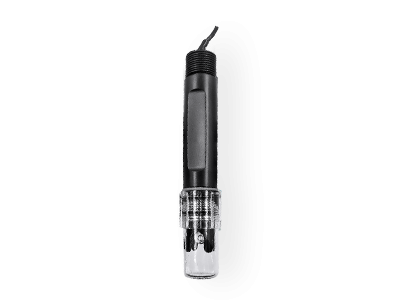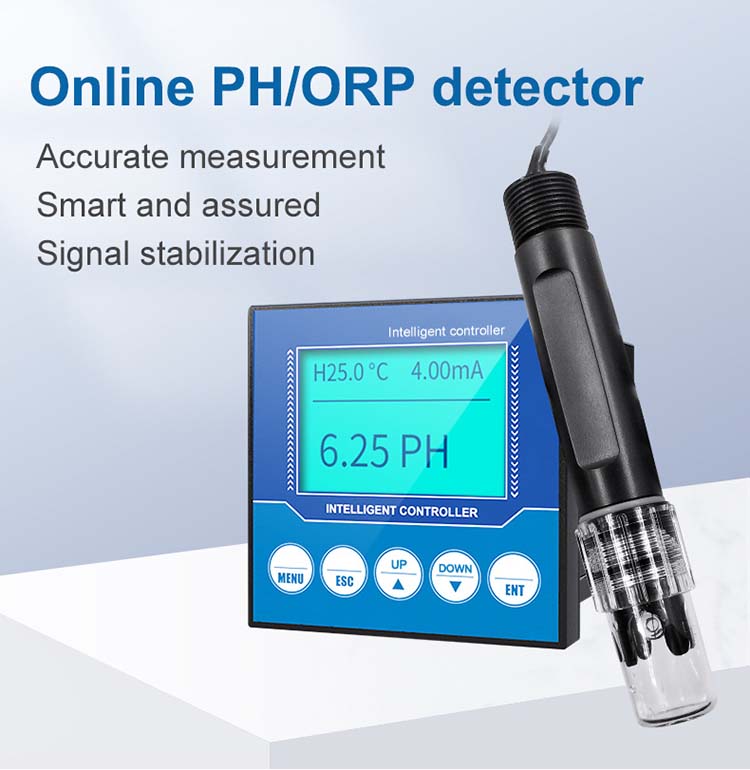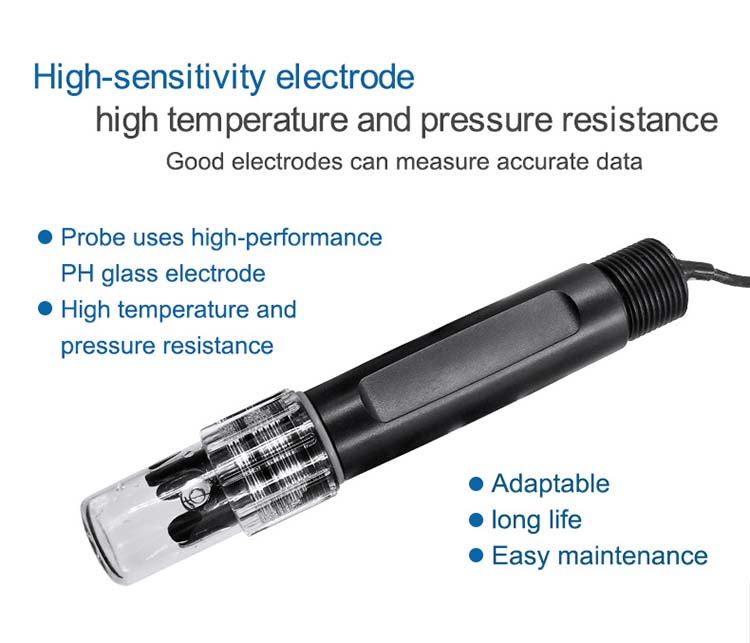
How does pH sensor monitor water PH?
JXCT has independently developed a combination pH sensor to monitor pH levels. The combined electric sensor has a measuring electrode and a reference electrode.

JXCT has independently developed a combination pH sensor to monitor pH levels. The combined electric sensor has a measuring electrode and a reference electrode.
JXCT has independently developed a combination pH sensor to monitor pH levels. The combined electric sensor has a measuring electrode and a reference electrode. The pH sensor's measuring electrode detects pH changes in the water while the reference electrode transmits a stable signal.
pH sensors monitor pH levels by measuring the activity of hydrogen ions. Activity is compared to pure water (a neutral solution) and pH 0 to 14 is used to determine acidity or alkalinity.

The pH of a solution, how acidic or basic it is, is a significant indicator of water quality. Water with more free hydrogen is acidic, compared to water with more free hydroxyl ions is basic. The pH scale of 0 to 14 indicates if water is acidic or alkaline, with pure water sitting at seven on the scale. When the pH value drops below 7, the water becomes more acidic. Whereas, if the number rises above 7, it becomes more alkaline or basic.
pH levels can be affected by chemicals in the water, so pH is an important indicator of water changing chemically. For example, water with a pH of five is 10x more acidic than water with a pH of six. When we drink liquids that are too acidic or too alkaline, it can disrupt the body’s balance, leading to developing bacteria, viruses, fungi and alike.
pH sensors are used in many industries, including chemicals, water and wastewater, and farming and forestry. The sensors used depend on the application. pH sensors are often used in urban environments with hydrothermal activity, meaning that in an environment associated with activity involving hot waters, pH levels can indicate changes in volcanic disturbance.

There are a variety of different pH sensor options. For the use of liquid measurement, pH sensors include combination, laboratory, process, and differential options.
The use of pH sensor probes in water quality management helps understand the water, see changes, and react fast. When pH issues are noticed, we can see what caused these issues. From manufacturing purposes to farming, a good water quality monitoring system in place can produce many benefits like:
Reducing water waste
Saving energy
Meeting sustainability requirements
Maintaining a healthy environment
Reducing the use of hazardous chemicals
In everyday life, poor water quality can cause significant health concerns. Therefore, a pH sensor plays a critical role in water quality and treatment. When the pH value of a water body becomes too high or too low, the water can be hazardous.